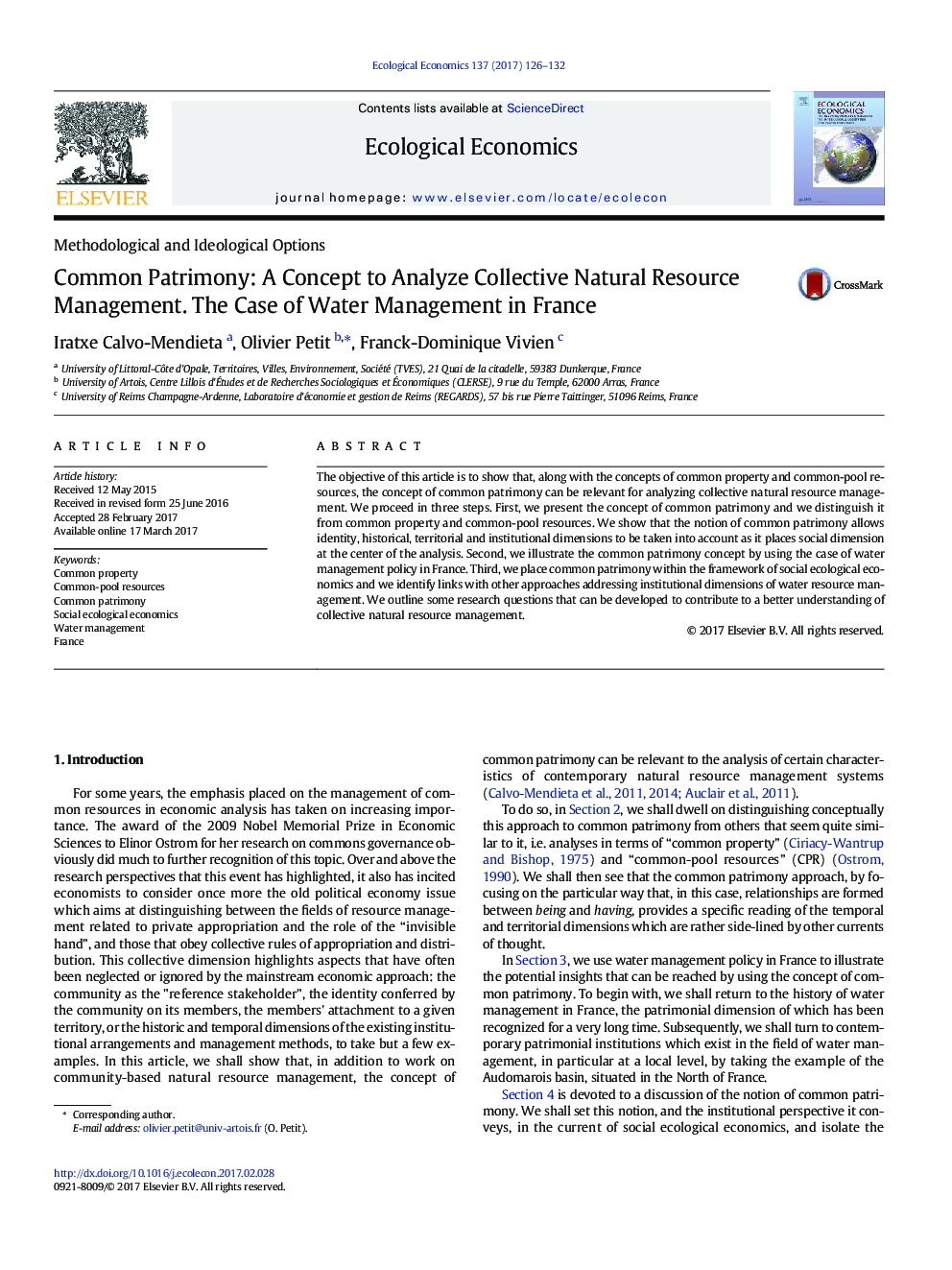| Article ID | Journal | Published Year | Pages | File Type |
|---|---|---|---|---|
| 5048925 | Ecological Economics | 2017 | 7 Pages |
â¢The notion of “commons” is abundantly mobilized in the literature, sometimes impreciselyâ¢We clarify the concepts of common property and common-pool resourcesâ¢We propose the notion of common patrimony to analyze collective natural resource management.â¢The common patrimony concept is illustrated by the case of water management in France. Patrimonial economics is set in the social ecological economics approach and is a fertile territory for interdisciplinary research.
The objective of this article is to show that, along with the concepts of common property and common-pool resources, the concept of common patrimony can be relevant for analyzing collective natural resource management. We proceed in three steps. First, we present the concept of common patrimony and we distinguish it from common property and common-pool resources. We show that the notion of common patrimony allows identity, historical, territorial and institutional dimensions to be taken into account as it places social dimension at the center of the analysis. Second, we illustrate the common patrimony concept by using the case of water management policy in France. Third, we place common patrimony within the framework of social ecological economics and we identify links with other approaches addressing institutional dimensions of water resource management. We outline some research questions that can be developed to contribute to a better understanding of collective natural resource management.
